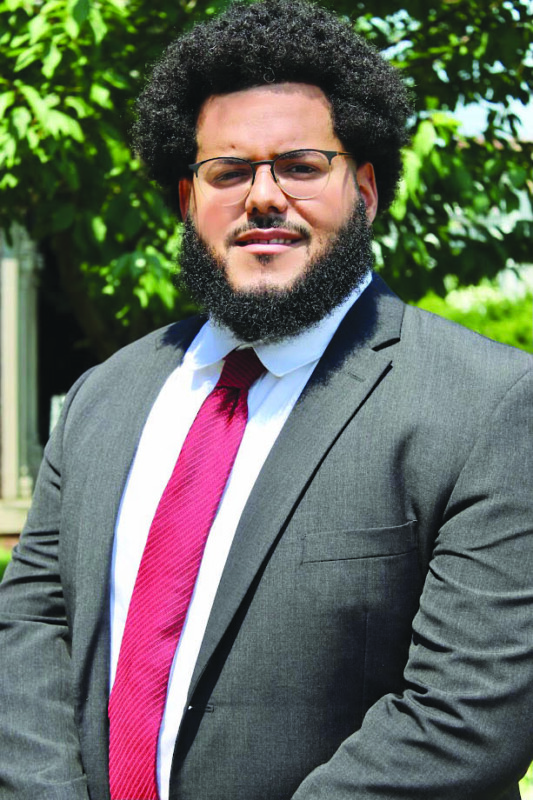| Covid-19 update | As of Sept. 20 | As of Sept 27 |
|---|---|---|
| Total cases statewide | 115,401 | 118,706 |
| Total current infections statewide | 3,769 | 3,595 |
| Total deaths statewide | 1,458 | 1,476 |
| New cases | 3,075 (Sept. 14 to Sept. 20) | 3,305 (Sept. 21 to Sept. 27) |
| Current infections: Hillsborough County | 932 | 1,038 |
| Current infections: Merrimack County | 431 | 447 |
| Current infections: Rockingham County | 719 | 715 |
Covid-19 news
As of Sept. 27 there were 3,595 active infections of Covid-19 statewide and 143 current hospitalizations. All 10 counties remain at substantial levels of community transmission.
On Sept. 22 the U.S. Food and Drug Administration authorized single booster doses of the Pfizer-BioNTech vaccine for certain populations, including for people over 65, as well as for those with underlying health conditions and who are regularly exposed to the virus, according to a press release. Booster doses can now be administered at least six months after receiving the second shot. “This pandemic is dynamic and evolving, with new data about vaccine safety and effectiveness becoming available every day,” Acting FDA Commissioner Janet Woodcock said in a statement. “As we learn more about the safety and effectiveness of Covid-19 vaccines … we will continue to evaluate the rapidly changing science and keep the public informed.”
With steadily climbing infection and hospitalization rates in the state, the New Hampshire Hospital Association issued a press release on Sept. 24 signed by dozens of health care professionals renewing their calls to get vaccinated, to wear a mask in indoor settings where social distancing is not possible, and to stay home when you are not feeling well. “There is no one solution that can completely eliminate the risk of spreading Covid-19, but when layered together, these interventions will have a significant impact,” the press release read in part.
Motion denied
On Sept. 27, the Hillsborough County Southern District Superior Court denied a motion to require that New Hampshire reinstate the Pandemic Unemployment Assistance Program and dismissed the case. According to a press release from the Office of the Governor, the state had announced it would be ending participation in the enhanced federal unemployment benefits over four months ago and gave citizens over a month’s notice to prepare for the termination as was required by the United States Department of Labor. According to the release, the court noted that “the plaintiffs have not demonstrated a likelihood of success on the merits of their claims because neither of the statutes on which they rely require the defendants to act. … Moreover, because all of the plaintiffs’ claims for relief are premised on flawed interpretations of RSA 282-A:127, I and 15 U.S.C. § 9021(c), the Court further finds that the plaintiffs cannot succeed on the merits of their claims as a matter of law. In other words, the plaintiffs have failed to state claims for which relief may be granted.” Gov. Chris Sununu thanked the court in a statement following the decision and said that “The New Hampshire Department of Employment Security has done a phenomenal job throughout the pandemic assisting out-of-work Granite Staters receive benefits and find work, and this ruling will allow them to continue helping our citizens unobstructed as we move forward.”
Economic support
The first two of the four planned Collaborative Economic Development Regions in New Hampshire have been established to promote economic expansion post-pandemic, according to a press release from the New Hampshire Department of Business and Economic Affairs. The regions were created as part of the state’s Economic Recovery and Expansion Strategy and will help facilitate collaboration among economic development partners with business retention and attraction; workforce development; entrepreneurship; infrastructure and business advocacy. “While the pandemic has taken a significant toll on the Granite State, New Hampshire has proven resilient,” BEA Commissioner Taylor Caswell said in the release. “CEDRs are an intentional approach that builds an infrastructure for the state’s entities to work together and deliver on our collective missions to support those employers.”
$10 million, found
Between November 2016 and July 2021 more than $10 million was located for New Hampshire residents who used the National Association of Insurance Commissioners’ Life Policy Locator tool, according to a press release from the New Hampshire Insurance Department. More than 1,000 consumers in the state searched for deceased relatives’ policies. Christopher Nicolopoulos, commissioner of the New Hampshire Insurance Department, said in the release that finding life insurance policies can be a challenge. “The Lost Policy Locator Tool is a powerful resource that has helped New Hampshire residents settle important details of the estates of deceased friends and family members,” he said.
Associated Grocers of New England’s distribution facility in Pembroke was scheduled to cut the ribbon on a new 1,292-kilowatt solar array on Sept. 29. According to a press release, the 3,400 solar panels are expected to generate more than 1,450,000 kilowatt-hours of clean energy every year, which is the equivalent of planting 17,000 trees or removing 224 cars from the road each year.
Granite United Way coordinated a Volunteer Day at two camps in Bedford last week. According to a press release, on Sept. 23 volunteers from several local companies, including Geneia, Enterprise and McLane Middleton, spent time at Camp Kettleford and Camp Allen working on end-of-season projects like landscaping and painting.
Members of the Manchester Garden Club recently planted fall flowers at several locations around the city: the Manchester Historic Association, the Manchester City Library and the Mary Gale Apartments. According to a press release, the club was established in 1933.
The Nashua Regional Planning Commission is holding a Household Hazardous Waste Collection on Saturday, Oct. 2, from 8 a.m. to noon at the Nashua City Park & Ride at 25 Crown St., according to a press release. Residents of Amherst, Brookline, Hollis, Hudson, Litchfield, Merrimack, Milford, Mont Vernon, Nashua, Pelham and Windham. There is a $15 user fee per vehicle, with additional charges for waste that exceeds 10 gallons or 20 pounds. Visit nashuarpc.org/hhw for a complete list of accepted items.




